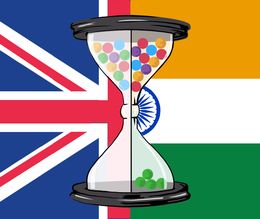While an Indian-origin UK PM has lost his premiership, in the emerging line-up for his succession as leader of the Tory party are two ladies of Indian origin—Suella Braverman and Priti Patel—and two contenders of African heritage, James Cleverly and Kemi Badenoch. There appears to be only one aspirant of indubitably British origin, Tom Tugendhat.
Moreover, the House of Commons now has—hold your breath—28 elected members of Indian origin, 12 of them Sikhs and two Muslims, and 15 of Pakistan origin, including at least six Indian and six Pakistani-origin women. As many as 13 per cent of the members are from ethnic minorities. It should shame us in India where the 14 per cent Muslim minority constitute less than four per cent of our Lok Sabha and Modi’s new council of ministers—for the first time ever—contains no Muslim.
It should shame us even more when we contrast the UK’s smooth transition to multi-coloured diversity in contrast to Sushma Swaraj’s threatened tonsure of her abundant hair if we had an Italian-born PM.
Readers of my generation would recall Enoch Powell’s infamous speech in Birmingham on April 20, 1968, when he predicted that “rivers of blood” would flow in the UK if immigrants from the former Empire, now the “New Commonwealth”, and particularly from South Asia, were to flow without impediment into the “green and pleasant land” of Great Britain, especially in view of the non-discrimination clauses of the Race Relations Act. Even more alarmingly, polls showed that three quarters of all Britons agreed with him. Yet, the Conservative party dismissed Powell within 24 hours from his high-profile position as the shadow defence secretary. Rivers of blood have indeed flowed in India and Pakistan, and in East and West Africa, from where a large segment of Britain’s immigrants come, but no river of blood has flown in the UK itself.
In his 1968 speech, Powell quoted one of his constituents as saying, “In this country, in 15 or 20 years’ time, the black man will have the whip hand over the white man.” Now, nearly 60 years have passed since that dire prediction and the British electorate have voluntarily handed political representation to an impressive number of non-whites, ironically many from precisely the area in the Midlands that once elected Powell. He had gone on to say, “We must be mad, literally mad, as a nation” to be encouraging such an influx. It amounts, he said to “watching a nation busily engaged in heaping up its own funeral pyre”. (Powell, who had strong India connections, didn’t seem to remember that in England, unlike India, the natives bury their dead and don’t burn them!) He went on to claim that Britons were being made “strangers in their own country”.
I have lived only a year-and-a-half in England as a university student. That was just a few years before the Powell speech. Far from being racist, my fellow-students and dons were uniformly kind and helpful. So were the general public. Years later, on a panel I shared with the renowned London-based lawyer, Sarosh Zaiwalla, he was asked whether in all his many years in England he had experienced any racist prejudice. He replied, “Never”. For while the British in colonial India did indeed include racist “white trash”, many were deeply committed to discovering our own much-neglected heritage to reveal “The Wonder That Was India”. It was imperialism that brought out the worst in them. At home, they were more gentle, more accommodating, electing Dadabhai Naoroji, Mancherjee Bhownaggree and Shapurji Saklatvala to the Commons when India was still in their grip—and now many, many more. They deserve our humble tribute.
Aiyar is a former Union minister and social commentator.


